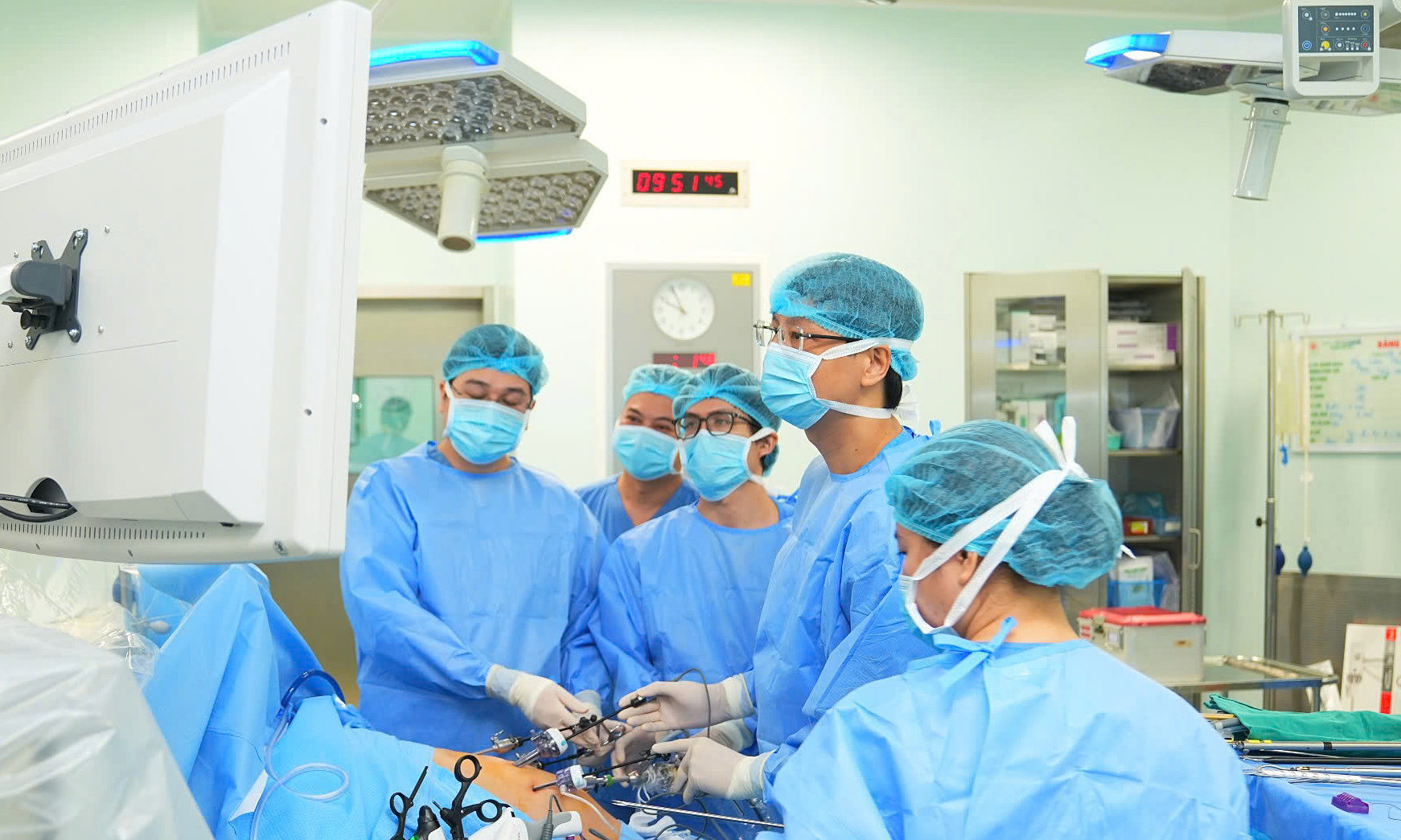About two weeks prior, the father began experiencing fatigue, increasing jaundice, and a dull abdominal pain. Doctors diagnosed him with acute liver failure due to chronic hepatitis B. He was treated at a local hospital for 4 days before being transferred to the National Hospital of Tropical Diseases on 13/8. His treatment included antibiotics, liver support medication, and two plasma exchanges. His condition worsened, and a week later, he fell into a hepatic coma. He was intubated and transferred to the 108 Military Central Hospital on 22/8 for further plasma exchange and intensive care.
"My father's condition was critical. The doctors informed us that he had 72 hours from the onset of the coma to receive a liver transplant, but since he had already been in a coma for a day, he only had 36 hours left," the son recounted. He added that all family members underwent testing to be potential donors, but only he and his mother were compatible.
However, since his mother had given birth just over two months prior, the son decided to donate a portion of his liver. On 24/8, doctors successfully performed the liver transplant.
This was one of 5 liver transplants performed consecutively at 108 Military Central Hospital during the last week of August. While the nation celebrated National Day on 2/9, the operating room lights remained on throughout the night at the hospital. With no holiday break, the doctors worked tirelessly to save the lives of patients suffering from acute liver failure and liver cancer, as a transplant was their only chance of survival. The 5 transplants included scheduled procedures, emergency transplants, and live-donor transplants.
One such patient was a 60-year-old man from Ninh Binh, diagnosed with multifocal recurrent hepatocellular carcinoma. In 2023, he underwent surgery for hepatocellular carcinoma. This time, during a routine check-up, the recurrent liver tumor was discovered, and he was advised to have a liver transplant.
Associate Professor Doctor Vu Van Quang, Deputy Head of the Hepatobiliary-Pancreatic Surgery Department, explained that liver transplants in patients who have previously undergone liver resection are often more complex due to adhesions from the previous surgery. Additionally, the left-side vascular and biliary systems were already removed, making reconstruction and anastomosis more challenging.
Following the transplant, both the recipient and the donor are in stable condition and under close monitoring.
"The 5 patients, once between life and death, are now recovering well. This is a precious gift for us, the military doctors," said Associate Professor Quang.
 |
Doctors performing a laparoscopic liver transplant. Photo: Lan Huong |
According to Associate Professor Quang, in the liver transplant cases performed last week, the grafted liver segments were all harvested from the donors using laparoscopic surgery. This is one of the most complex laparoscopic procedures, requiring high levels of expertise, experience, and advanced, synchronized equipment.
This minimally invasive method offers several advantages for liver donors, including reduced post-operative pain compared to open surgery, faster recovery time, and improved cosmetic results, while achieving outcomes comparable to open surgery.
The first laparoscopic live-donor liver segment harvest in Vietnam was performed at 108 Military Central Hospital in 11/2021. To date, the hospital has successfully performed this procedure in over 90 cases. Globally, only a few Hepatobiliary and Liver Transplant Centers in medically advanced countries like the US, Europe, Japan, and South Korea are capable of performing laparoscopic live-donor liver segment harvesting.
The hospital began performing liver transplants over 8 years ago and is now the center with the highest number of live-donor liver transplants in Southeast Asia.
Le Nga












